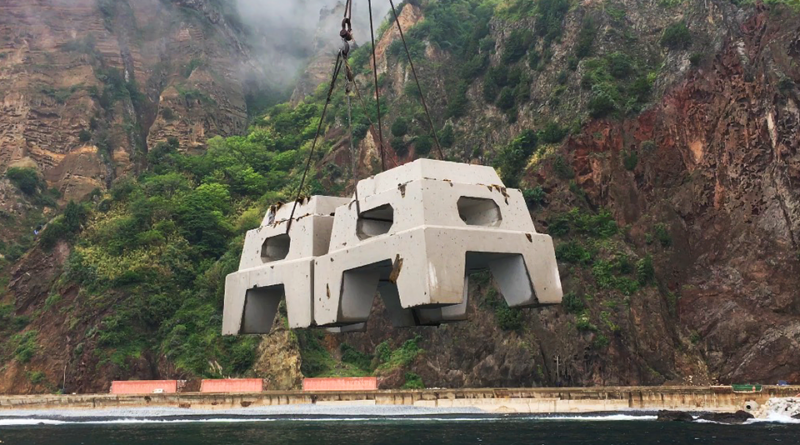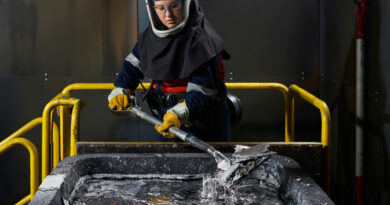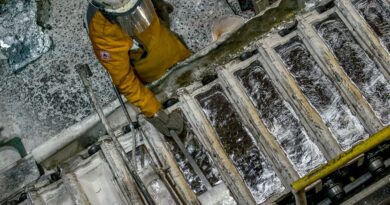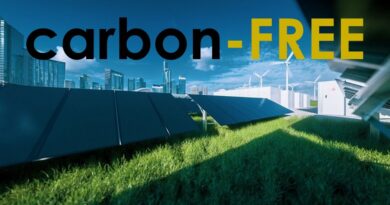Steel slag used to develop sustainable marine fertilizer
POSCO, a major Korean steelmaker, has launched a sea forest cultivation program in Ulleung Island to mark the National Ocean Day. Earlier in the month, POSCO installed 100 Tritons* and 750 Triton blocks underwater and fostered a sea forest reaching 0.4ha in Ulleung Island.
The installed Tritons have been acknowledged as artificial reefs by the Ministry of Oceans and Fisheries. The 100 Tritons were placed on the edge of the sea forest to facilitate the growth of marine algae while 750 Triton blocks were stacked up in the center, serving as a habitat and breeding ground for fish.
* Triton: The name Triton is taken after the god of the sea in Greek mythology. It is an artificial reef brand made with POSCO’s steel slag. The materials used to make Triton has proven to be safe for the environment as well as for marine life.
About 20 attendants were present at the event, including Ulleung Island Governor Byung-Soo Kim, fishermen of Ulleung Island, President of POSCO In-Hwa Chang, and RIST President Seong Yu. They inspected the sea forest site where the artificial reefs were installed.
In 2000, POSCO, together with RIST, developed an artificial reef Triton made with steel slag, a co-product of the steelmaking process. The company provided steel slags that amount to a total of 6559 Tritons free of charge. The Tritons were placed in 30 different sea forests in South Korea. In this case of Ulleung Island, POSCO not only provided the steel slag but also participated directly from the production to the installation stage.
Steel slag, the main material of Triton, has high mineral content such as calcium and iron, which are useful for marine ecosystems than general aggregates. Not only can the Triton facilitate the growth of marine algae, but it can also promote photosynthesis, thus restoring the marine ecosystem and diversifying coastal organisms as well. Also, the Triton reef can withstand typhoons and tsunamis due to its high gravity and strength and is highly resistant to seawater corrosion.
POSCO is focusing on the Triton sea forest cultivation project as one of the major Corporate Citizenship activities. The project is expected to restore the marine ecosystem and has a Blue Carbon effect since it absorbs and stores CO₂ underwater. RIST and other related organizations have revealed that sea forests are capable of storing 3 to 16 tons of carbon dioxide annually per hectare.
Ulleung Island Governor Byung-Soo Kim said, “We are glad that POSCO has stepped in to help resolve the issues of the marine ecosystem here in Ulleung Island.“ President of POSCO In-Hwa Chang explained that POSCO, as a Corporate Citizen, will actively take part in contributing to the local community with POSCO’s technology.
POSCO explored different underwater sites around Ulleung Island since December last year and selected the best location to cultivate a sea forest. In April, the company conducted a thorough investigation to understand the existing biological habitat. And finally, this month, POSCO transported the Triton to Ulleung Island and installed them underwater. POSCO and Ulleung Island will continue follow-up management — including research of water quality, supplemental planting of marine algae, and exterminating harmful organisms.
POSCO plans to develop sustainable sea fertilizer and a new type of artificial reef using steel slag. These developments are expected to contribute to restoring the marine ecosystem and also help improve the income of local fishermen.




